News/Events

Funding boost for ‘sponge on a string’ trial
Millions of pounds in funding has been announced for a trial that could pave the way for a ‘sponge on a string’ test to be established as a routine screening programme to detect Barrett’s oesophagus – a condition that can lead to oesophageal cancer. Read more
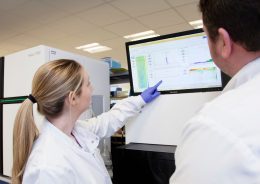
Children with cancer benefit from whole genome sequencing
More than 100 children with cancer from across the East of England have had their tumours tested by whole genome sequencing to help improve their diagnosis and treatment.Read more
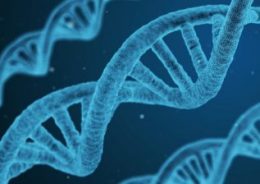
Largest study of whole genome sequencing data reveals new clues to causes of cancer
DNA analysis of thousands of tumours from NHS patients has found a ‘treasure trove’ of clues about the causes of cancer.Read more

Cambridge Clinical School successfully renews Silver Award for Athena Swan Charter
The University of Cambridge School Of Clinical Medicine which is part of the NIHR Cambridge BRC partnership, has been awarded the Athena Swan Charter Silver Award for another five years.Read more

Brain charts map the rapid growth and slow decline of the human brain over our lifetime
An international team of researchers has created a series of brain charts spanning our entire lifespan – from a 15 week old fetus to 100 year old adult – that show how our brains expand rapidly in early life and slowly shrink as we age.Read more

Cambridge recruits first patient to national inflammation study
Cambridge recruits first patient in a new national vasculitis trialRead more

From physiotherapist to researcher: a new and exciting research career for Peter
‘Dr Hartley will see you now’ is a phrase that still sounds unfamiliar to physiotherapist, Peter Hartley. For the last 10 years, Peter has been busy working both clinically and academically to achieve his doctorate. Read more

Study suggests lithium may decrease risk of developing dementia
Researchers have identified a link which suggests that lithium could decrease the risk of developing dementia, which affects nearly one million people in the UK. Read more
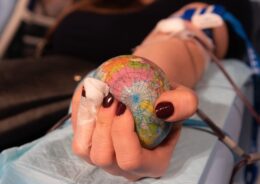
Personalised blood test can detect persistent lung cancer
Patients who are at a higher risk of their lung cancer returning can be identified by a personalised blood test that is performed after treatment, according to new research.Read more
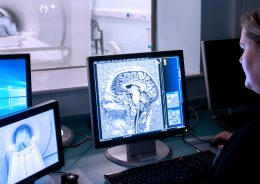
Exploring how inflammation affects cognitive performance in people with depression
Research has found that inflammation may influence cognitive problems for people with depression, highlighting a new target to improve treatment.Read more
Breaking the Bias for International Women’s day
International Women’s Day is celebrated globally on 8 March every year. It focuses on highlighting women, calling for equal opportunities and removing discrimination. The theme for 2022 is ‘Breaking the Bias’. Read more

Cambridge Professors receive NIHR Senior Investigator awards
Professor Emanuele Di Angelantonio and Professor Tamsin Ford have been newly-appointed as Senior Investigators for the NIHR. Read more
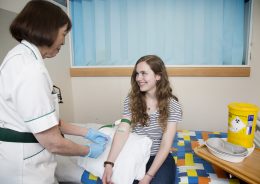
Cambridge CRF receives new funding boost for delivery of early stage clinical research
The NIHR Cambridge Clinical Research Facility (CRF) has been awarded new funding to support its research over the next 5 years.Read more

Cancer drug gives hope in treating heart attacks
Cambridge researchers have found a drug used to treat cancer could help with heart attack recovery.Read more

1,000 Covid patients sign up to UK drug trial
A study funded by the NIHR Cambridge BRC, has enrolled a thousand Covid patients to find new treatments for the long term consequences of the disease.Read more

Artificial pancreas proves ‘life-changing’ for very young children with type 1 diabetes and their families
An artificial pancreas developed by Cambridge researchers and supported by the NIHR Cambridge BRC, has found it is both safe to use and more effective at managing blood sugar levels in young children than current technology.

Award given to build data ‘bridge’ that could revolutionise precision medicine
Funding awarded by UK Research and Innovation as part of the DARE UK programme, to develop and test a health data ‘bridge’ for researchers to work with combined data.Read more

Consensus opens door to worldwide improvements in breast cancer radiotherapy treatment
A panel of European experts and patients has identified a way to achieve major changes in the way radiotherapy treatment for breast cancer patients is delivered around the world.Read more
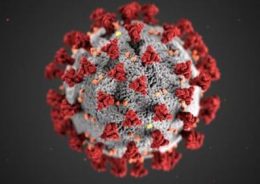
Omicron may be significantly better at evading vaccine-induced immunity, but less likely to cause severe disease
The Omicron variant of SARS-CoV-2 may be significantly better than previous variants at evading vaccine-induced antibodies, according to new researchRead more

NICE prostate guidelines updated based on Cambridge research
A Cambridge developed model to risk-categorise prostate cancer has been added to the NICE guidelines.Read more


